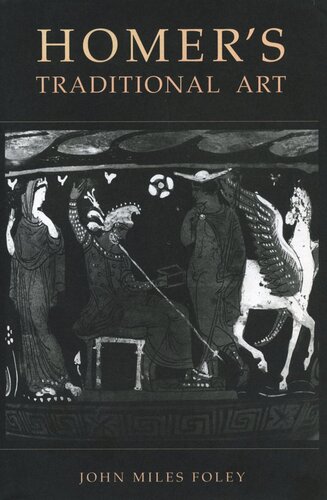

Most ebook files are in PDF format, so you can easily read them using various software such as Foxit Reader or directly on the Google Chrome browser.
Some ebook files are released by publishers in other formats such as .awz, .mobi, .epub, .fb2, etc. You may need to install specific software to read these formats on mobile/PC, such as Calibre.
Please read the tutorial at this link: https://ebookbell.com/faq
We offer FREE conversion to the popular formats you request; however, this may take some time. Therefore, right after payment, please email us, and we will try to provide the service as quickly as possible.
For some exceptional file formats or broken links (if any), please refrain from opening any disputes. Instead, email us first, and we will try to assist within a maximum of 6 hours.
EbookBell Team

5.0
90 reviewsIn recent decades, the evidence for an oral epic tradition in ancient Greece has grown enormously along with our ever-increasing awareness of worldwide oral traditions. John Foley here examines the artistic implications that oral tradition holds for the understanding of the Iliad and Odyssey in order to establish a context for their original performance and modern-day reception.
In Homer's Traditional Art, Foley addresses three crucially interlocking areas that lead us to a fuller appreciation of the Homeric poems. He first explores the reality of Homer as their actual author, examining historical and comparative evidence to propose that "Homer" is a legendary and anthropomorphic figure rather than a real-life author. He next presents the poetic tradition as a specialized and highly resonant language bristling with idiomatic implication. Finally, he looks at Homer's overall artistic achievement, showing that it is best evaluated via a poetics aimed specifically at works that emerge from oral tradition.
Along the way, Foley offers new perspectives on such topics as characterization and personal interaction in the epics, the nature of Penelope's heroism, the implications of feasting and lament, and the problematic ending of the Odyssey. His comparative references to the South Slavic oral epic open up new vistas on Homer's language, narrative patterning, and identity.
Homer's Traditional Art represents a disentangling of the interwoven strands of orality, textuality, and verbal art. It shows how we can learn to appreciate how Homer's art succeeds not in spite of the oral tradition in which it was composed but rather through its unique agency.